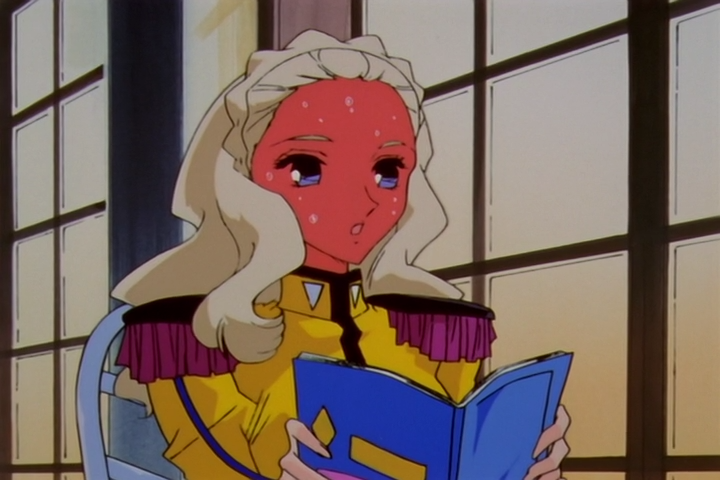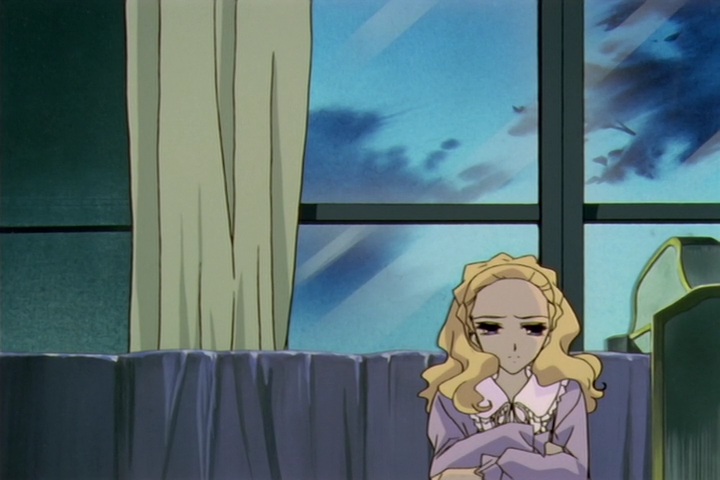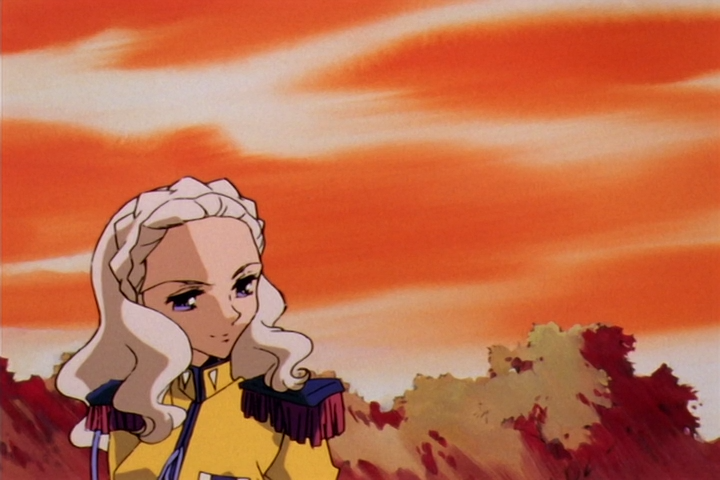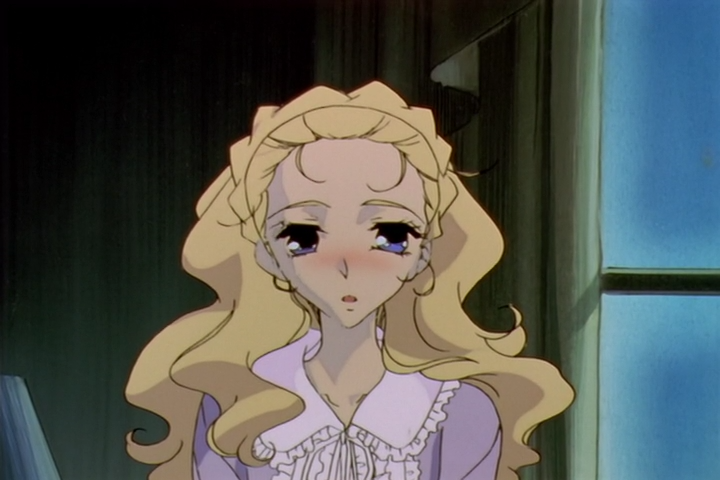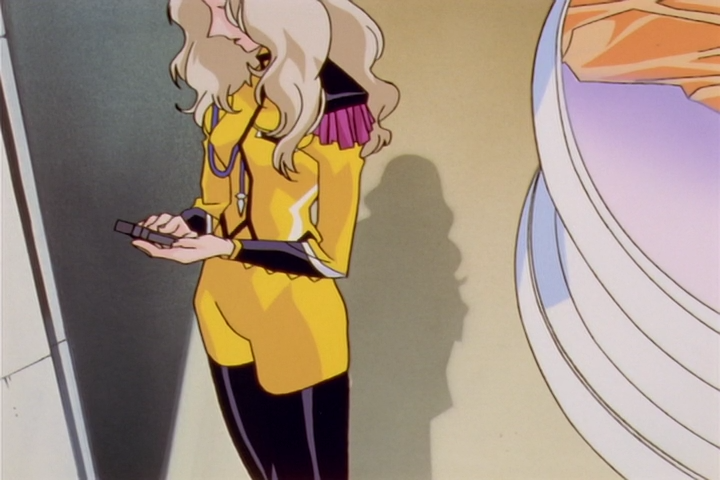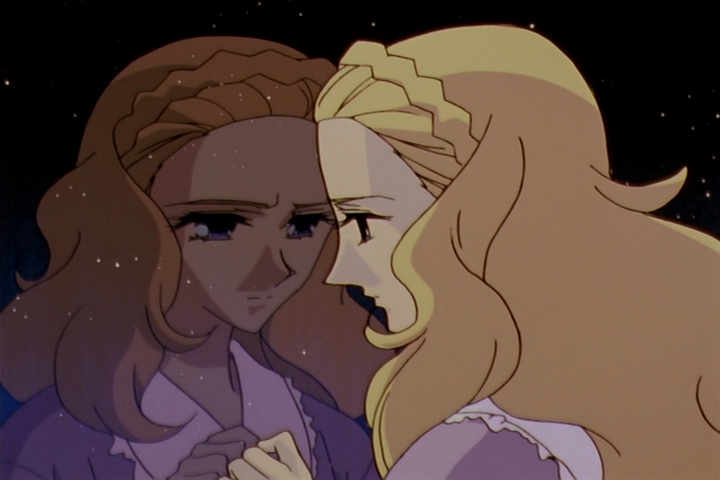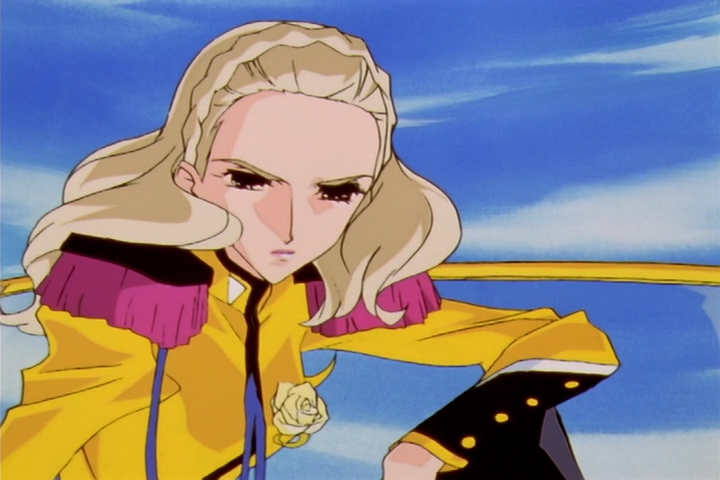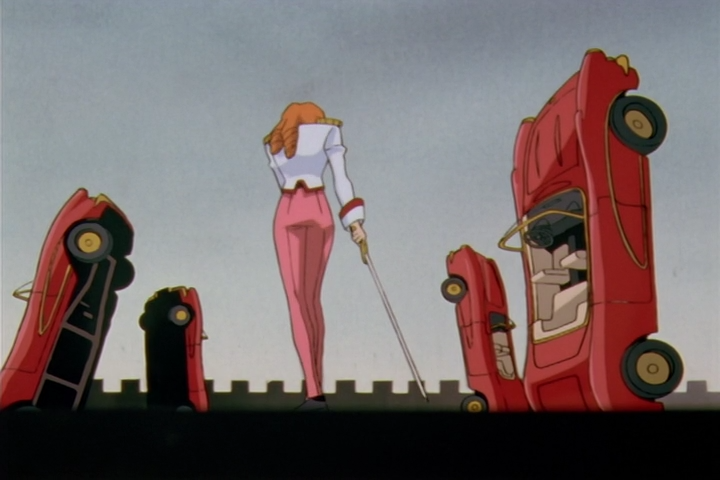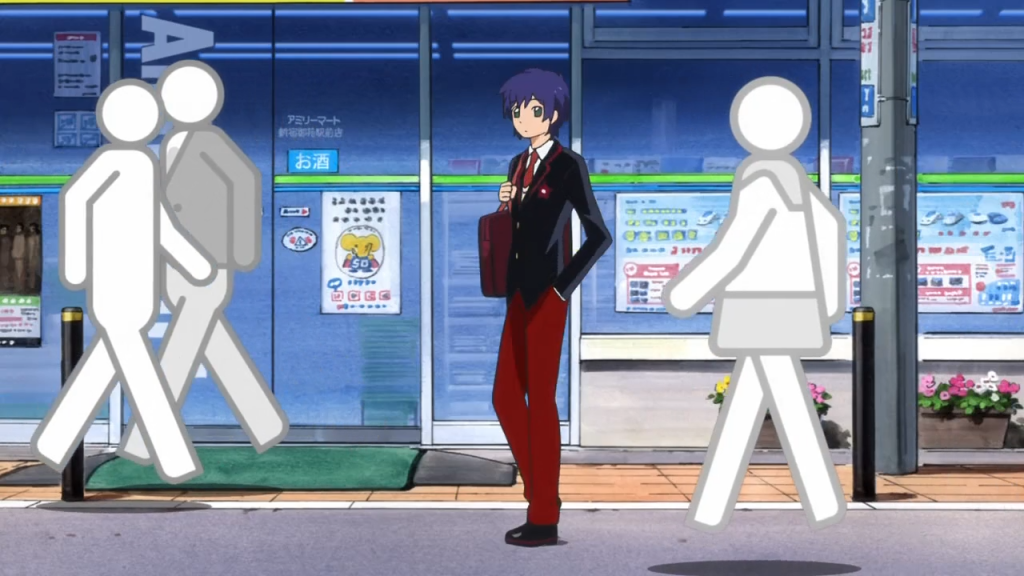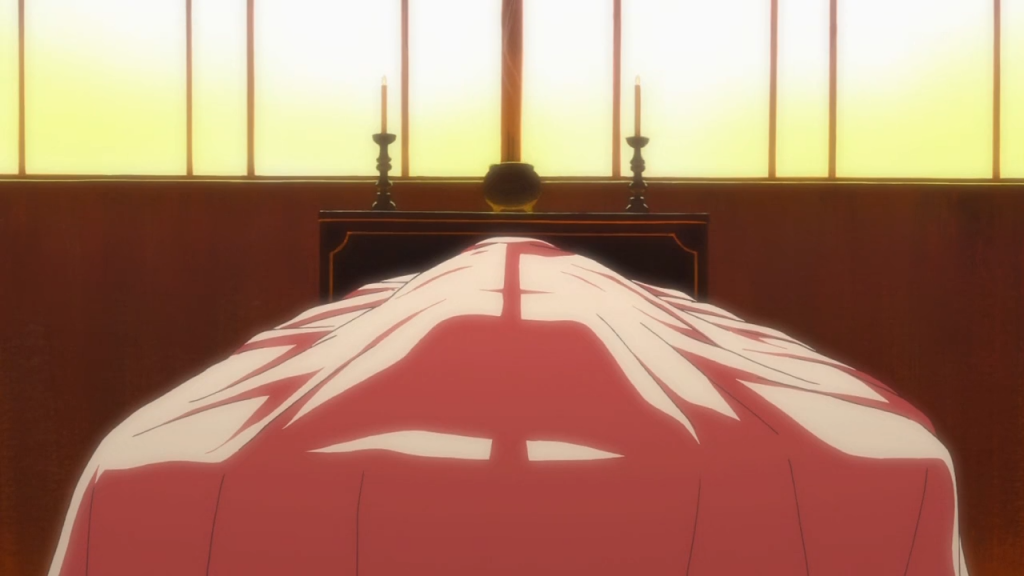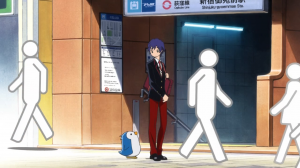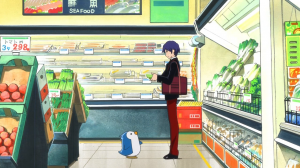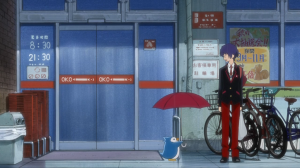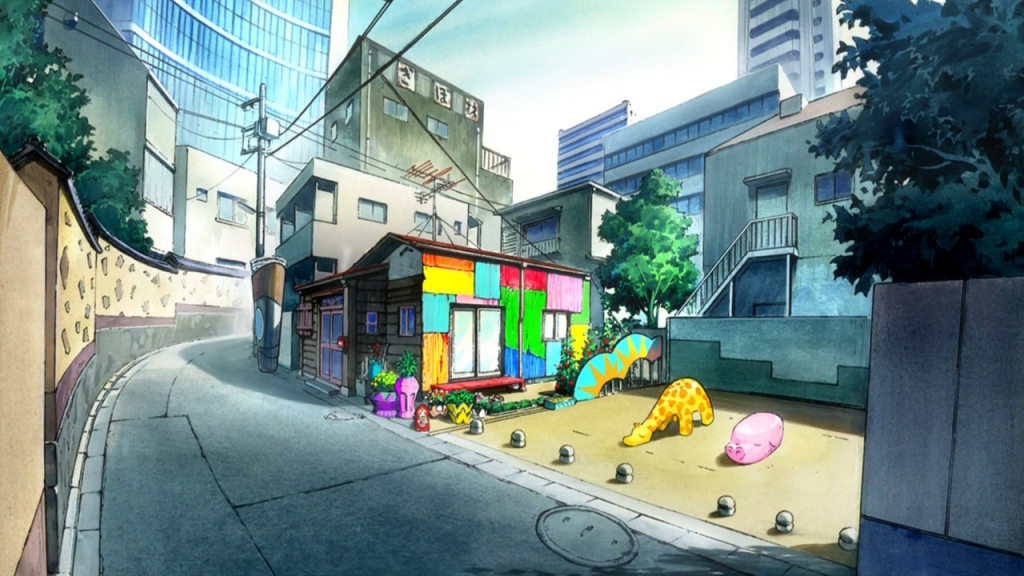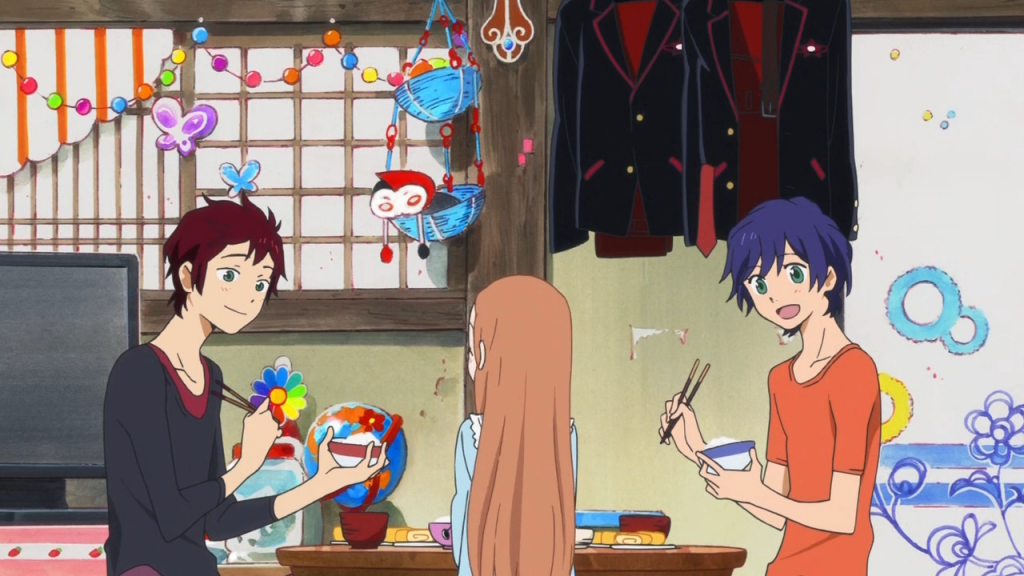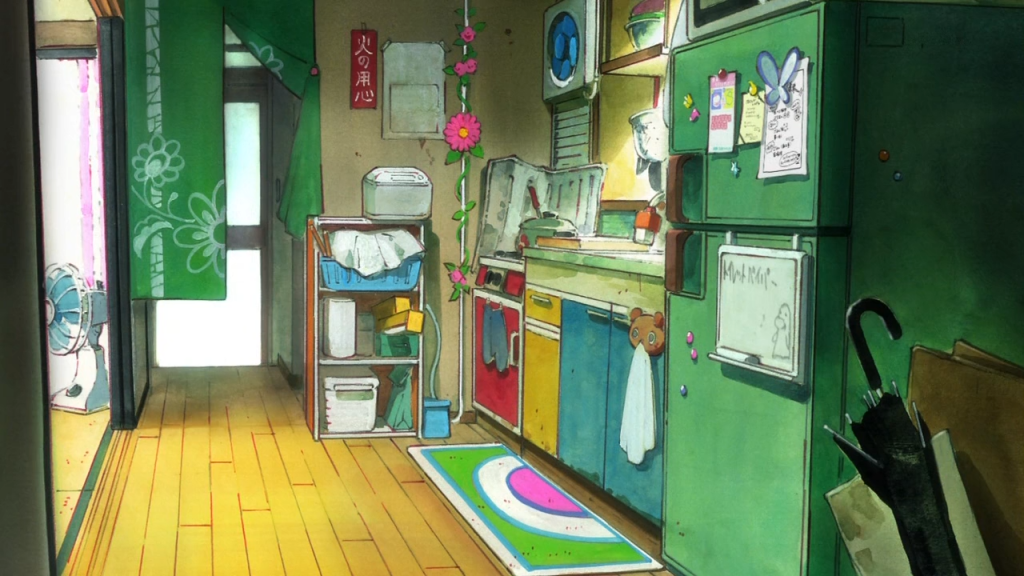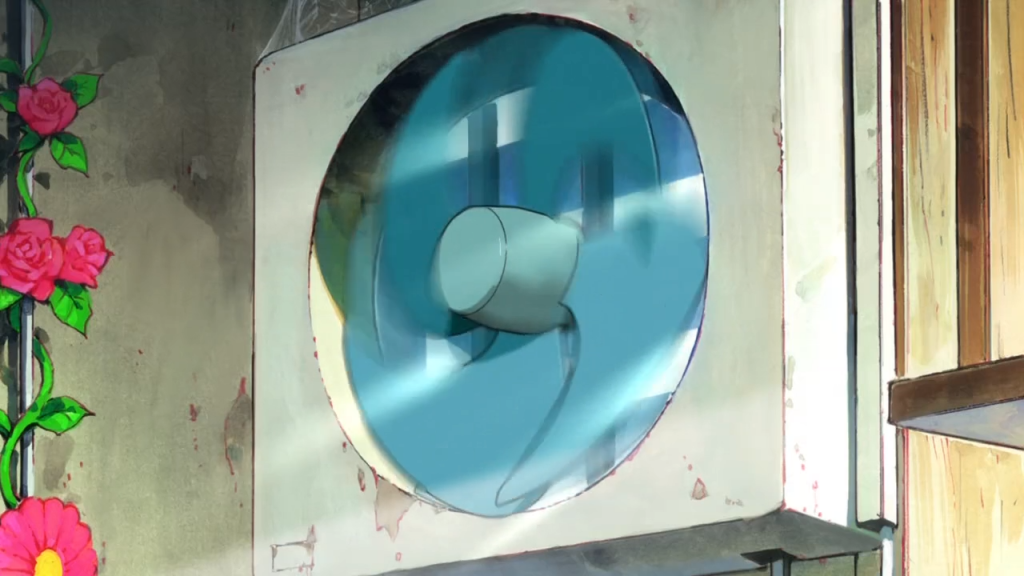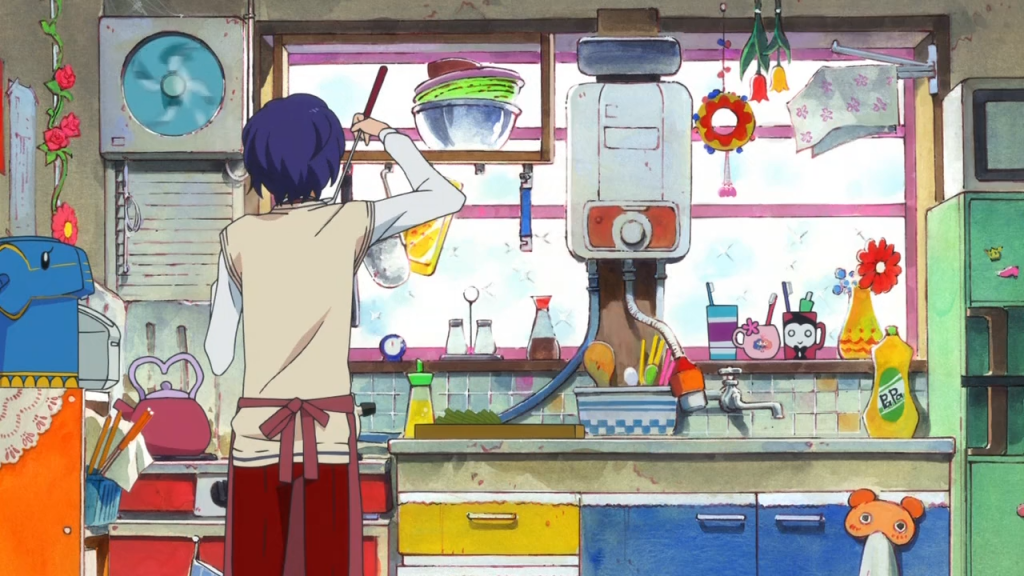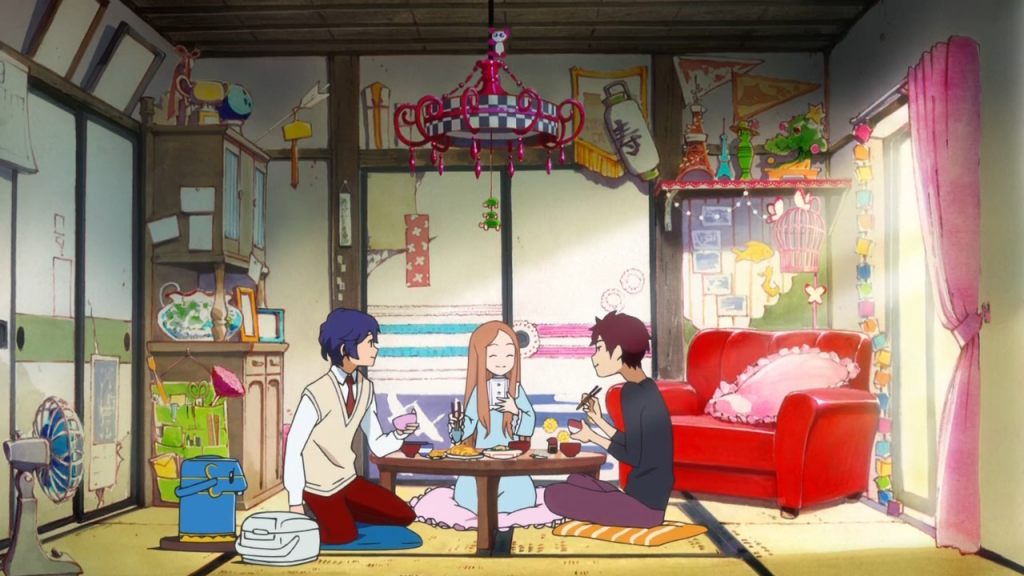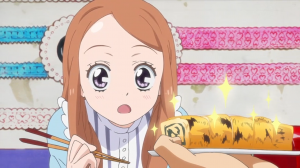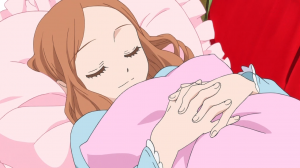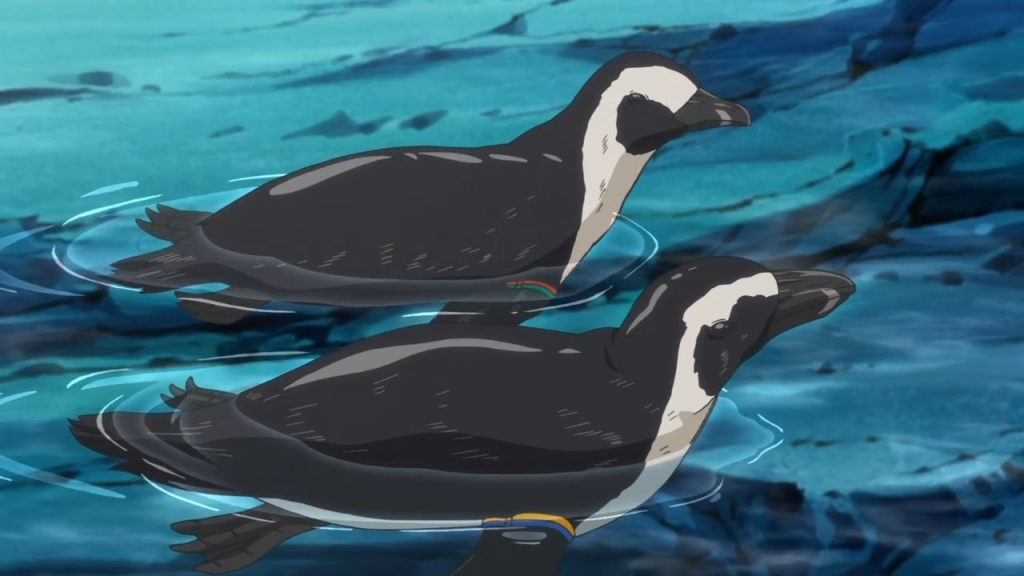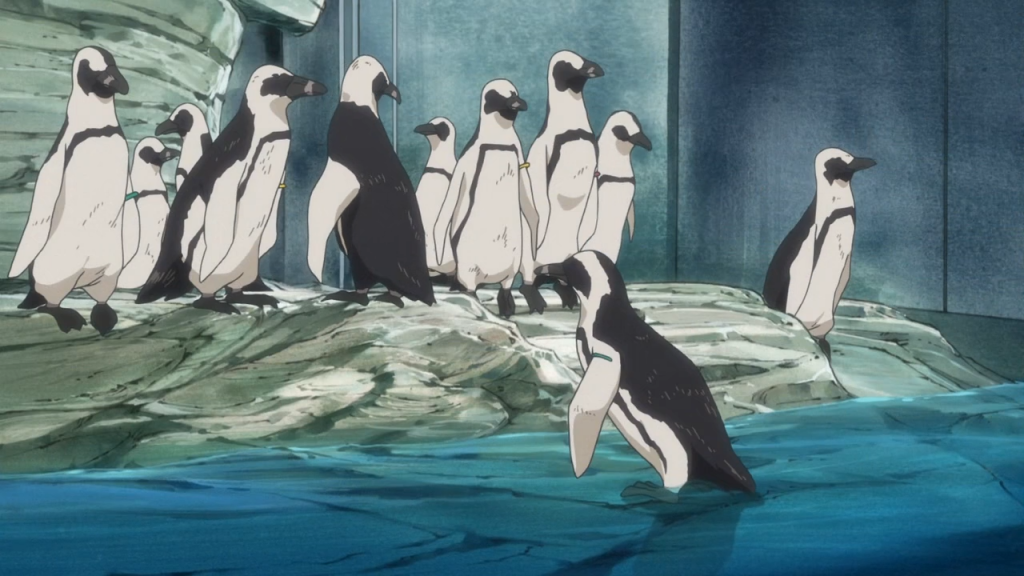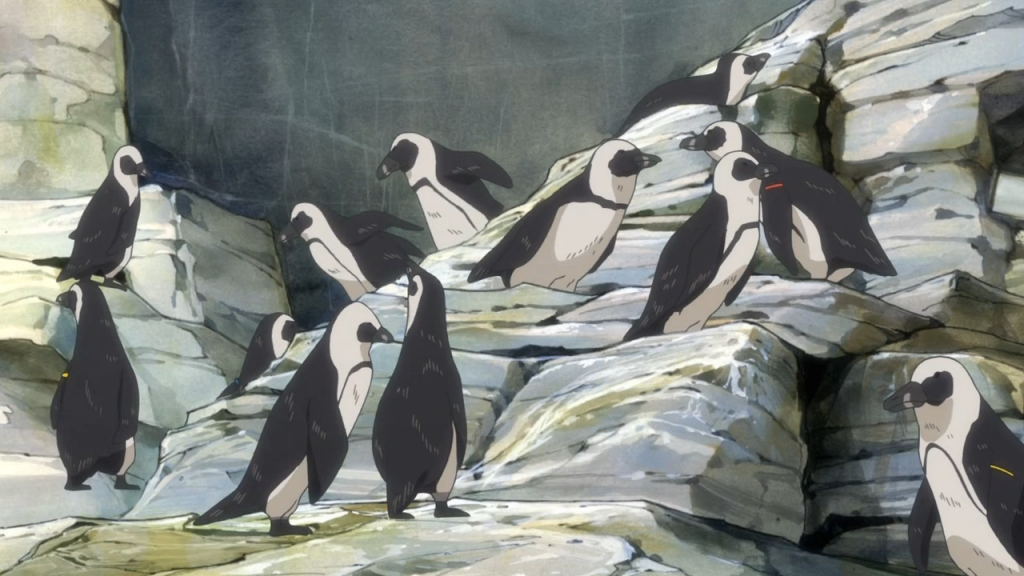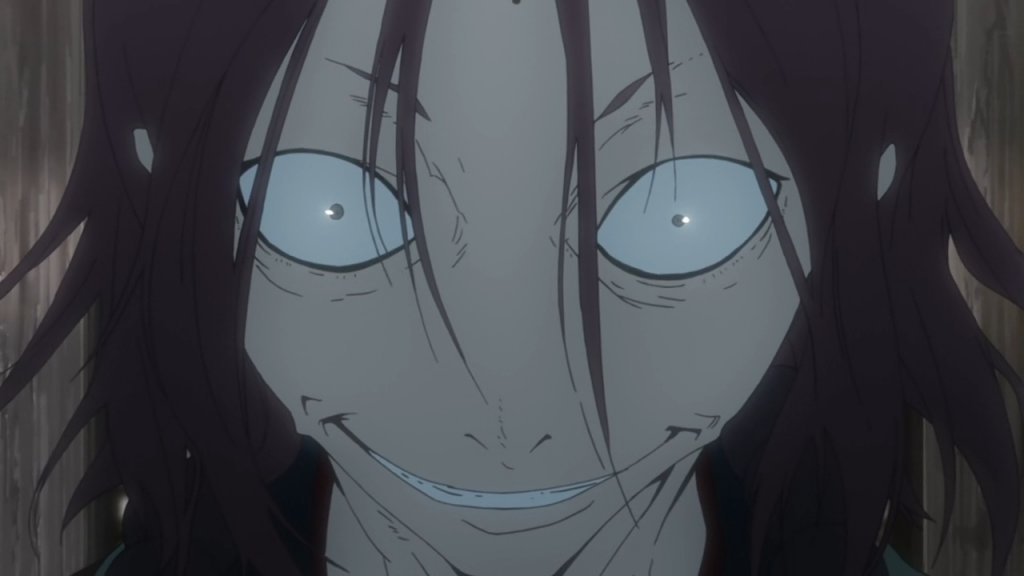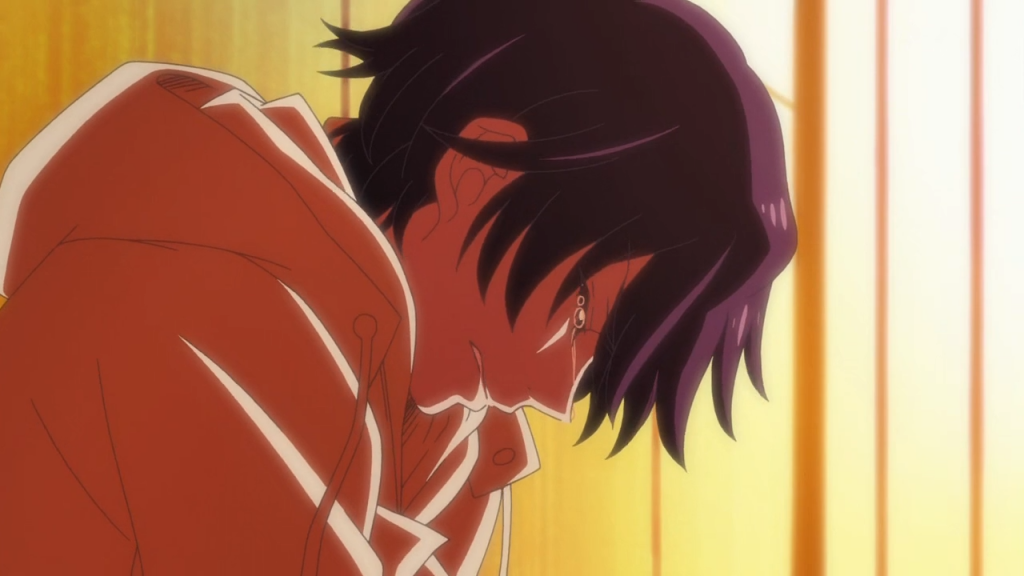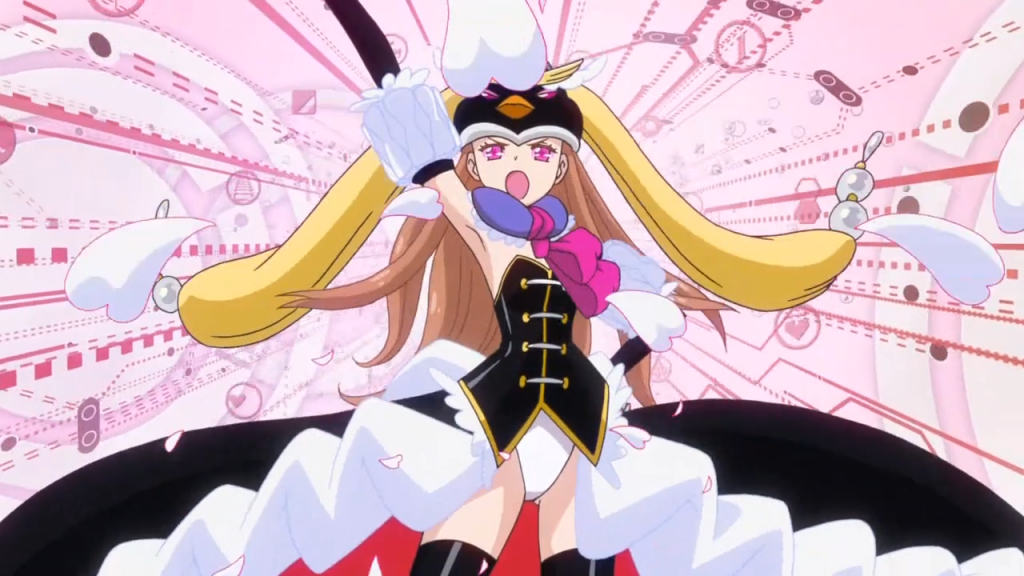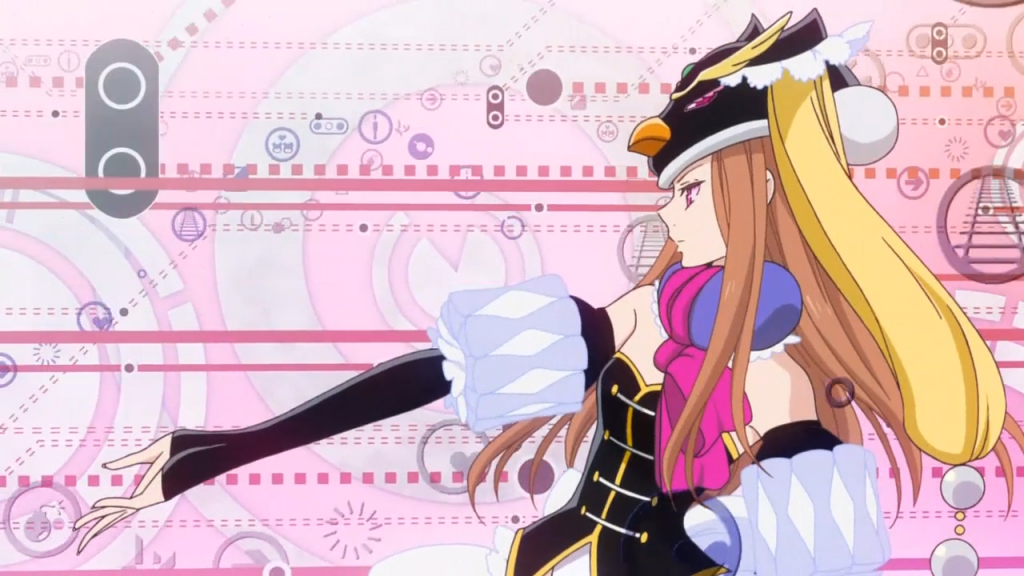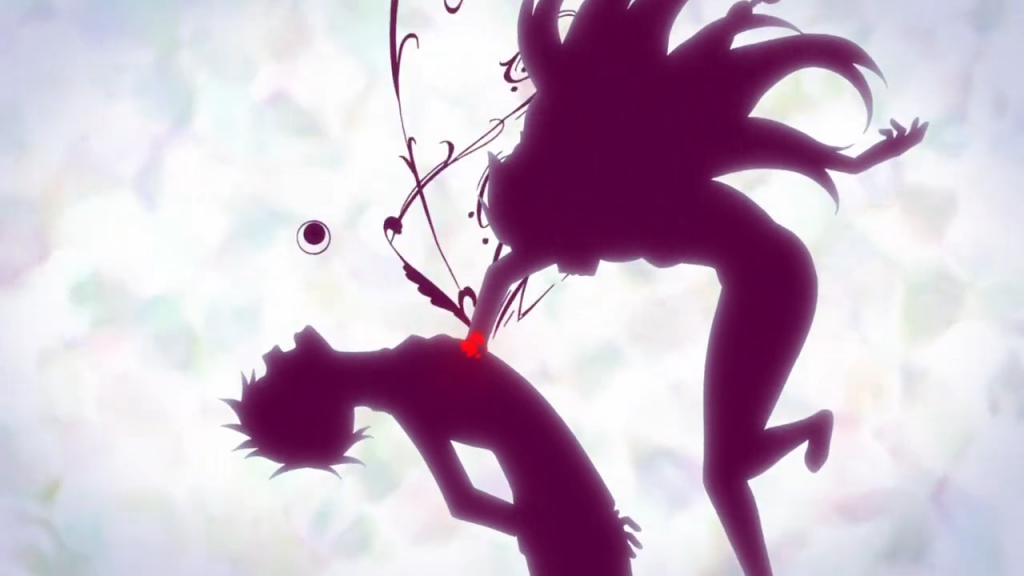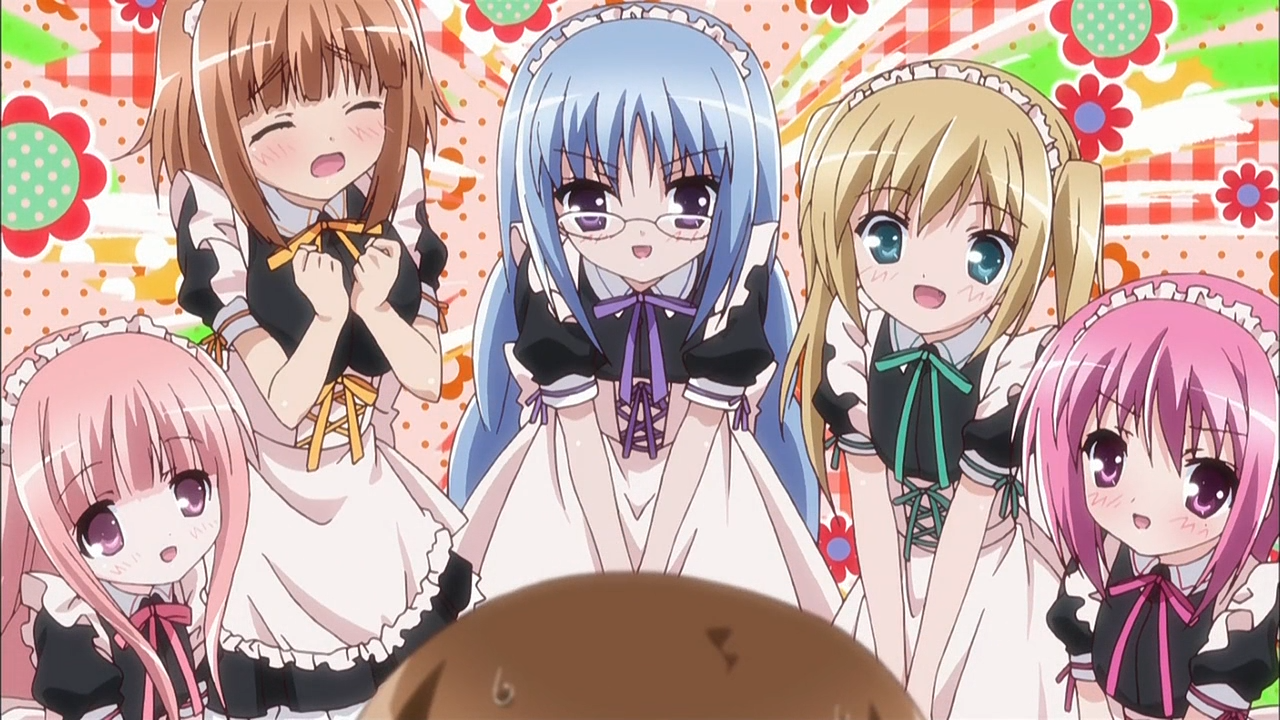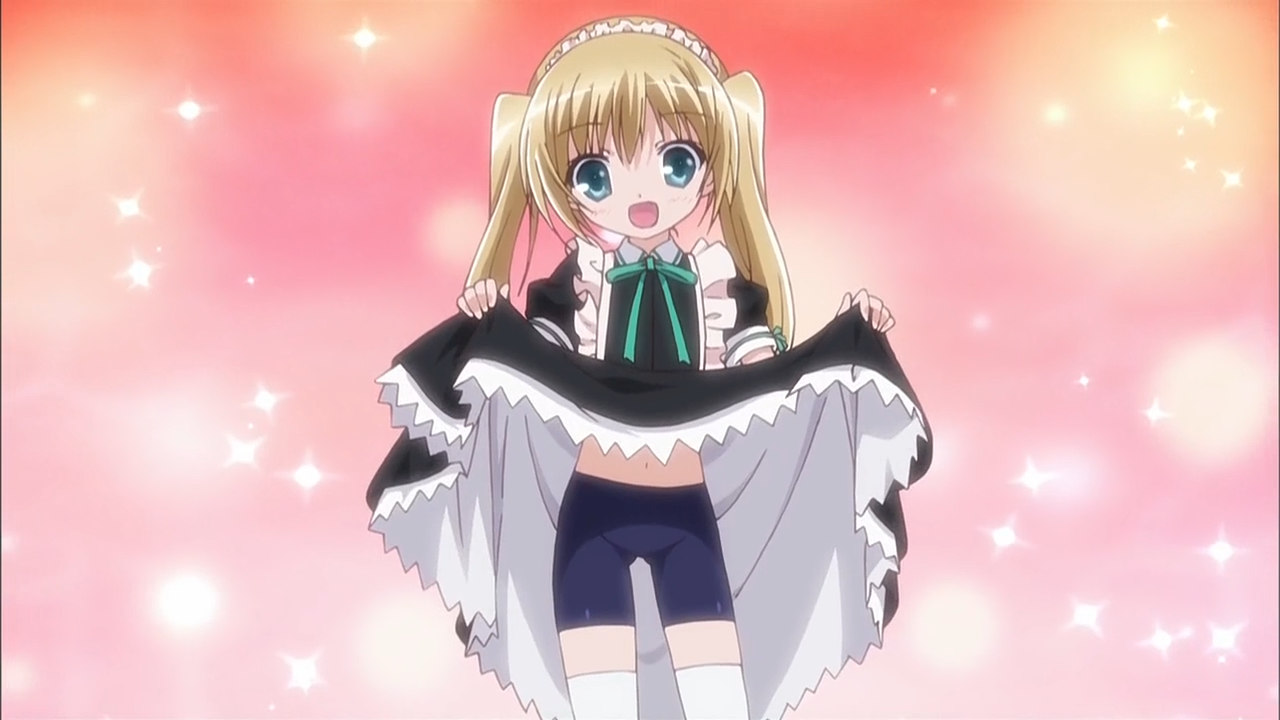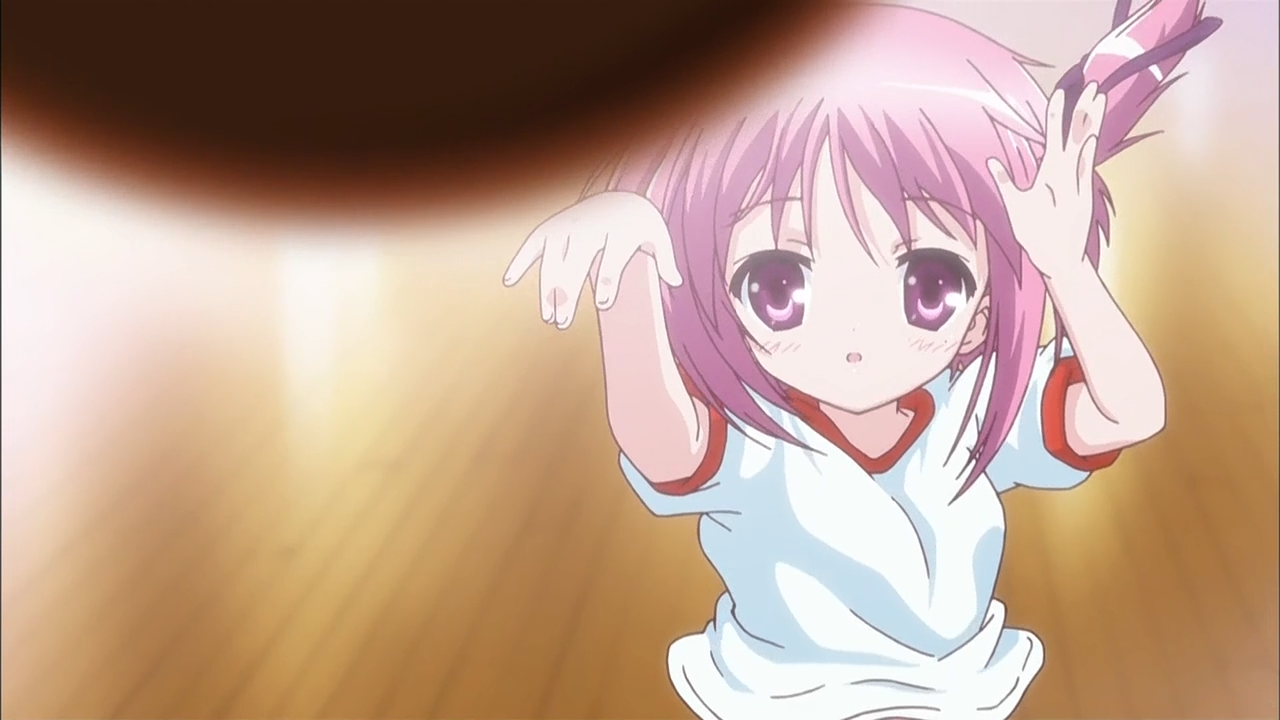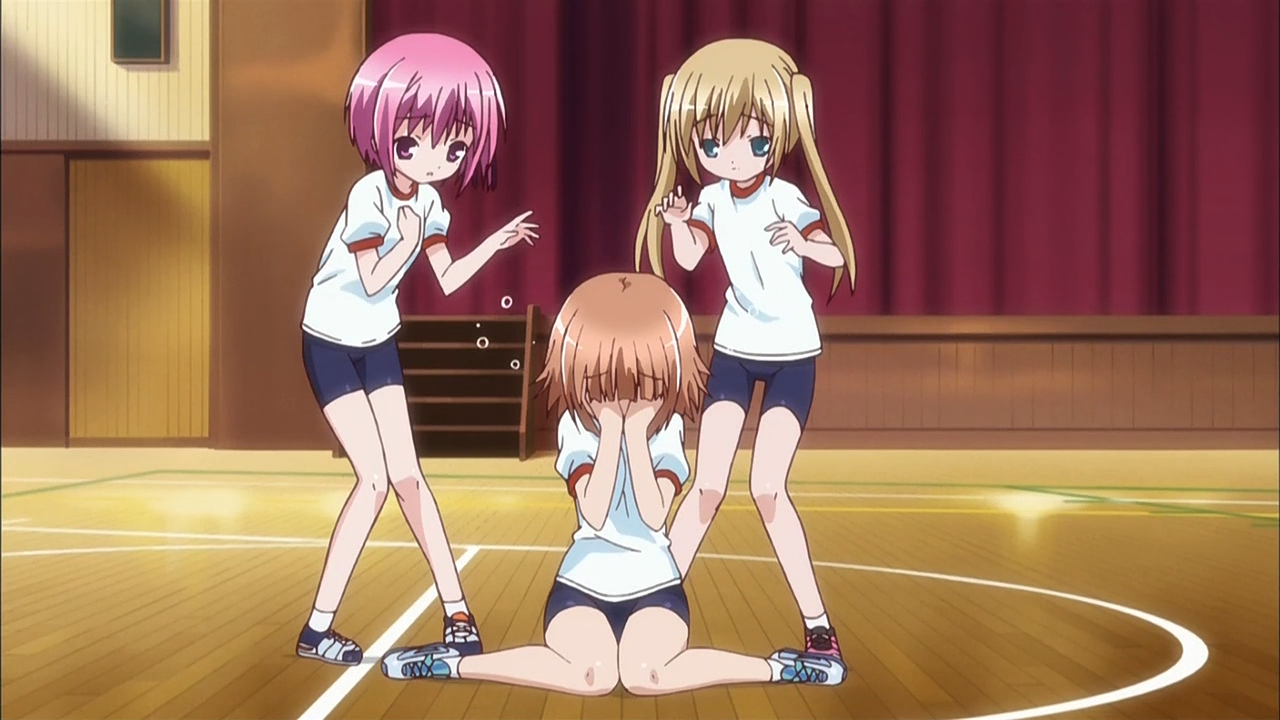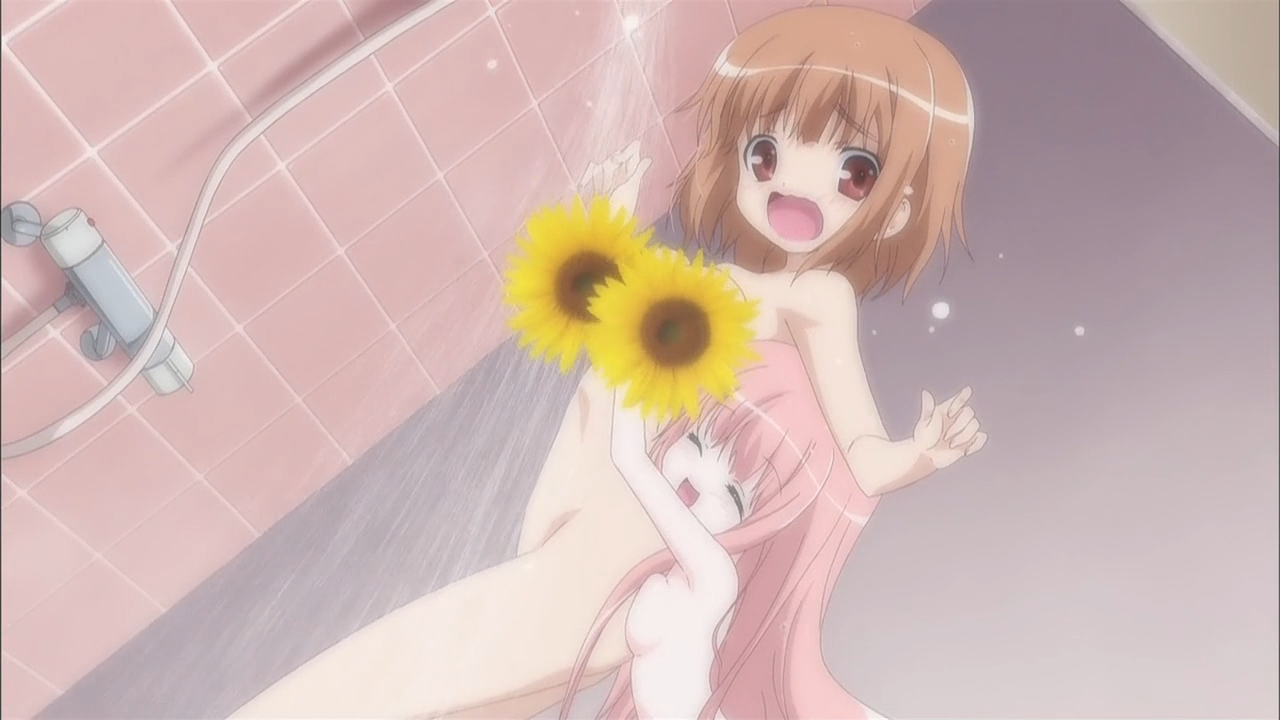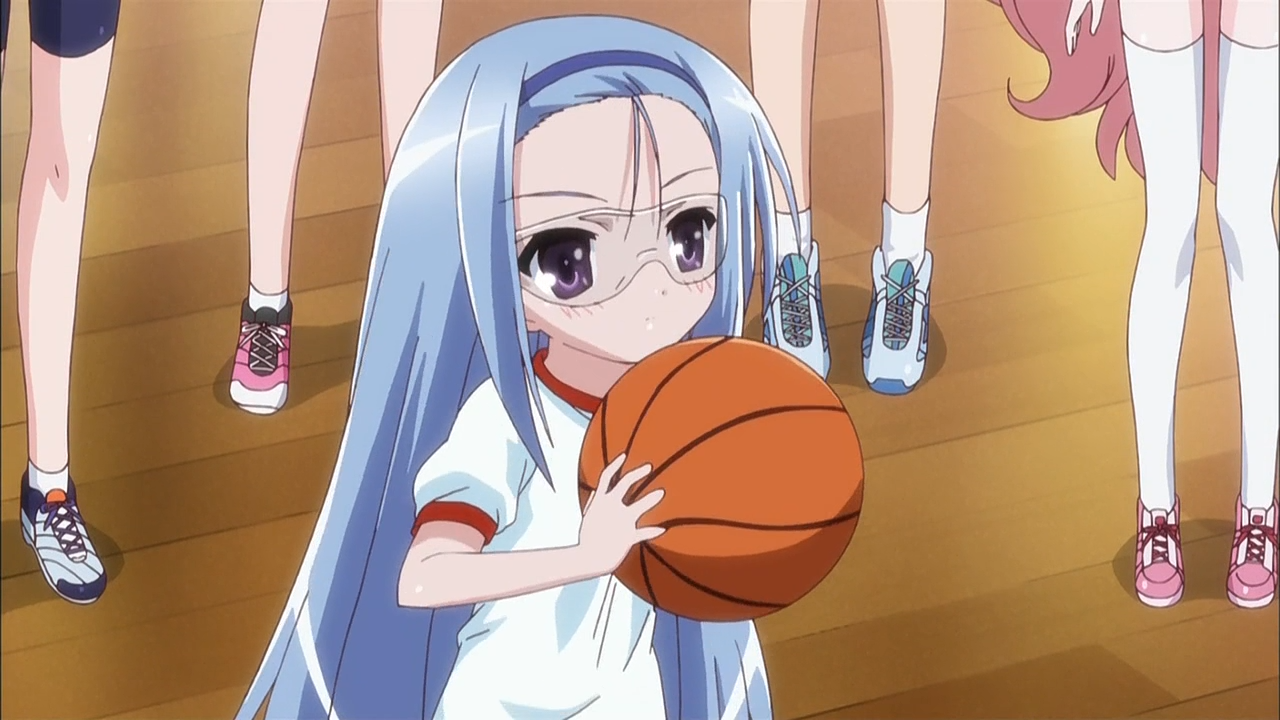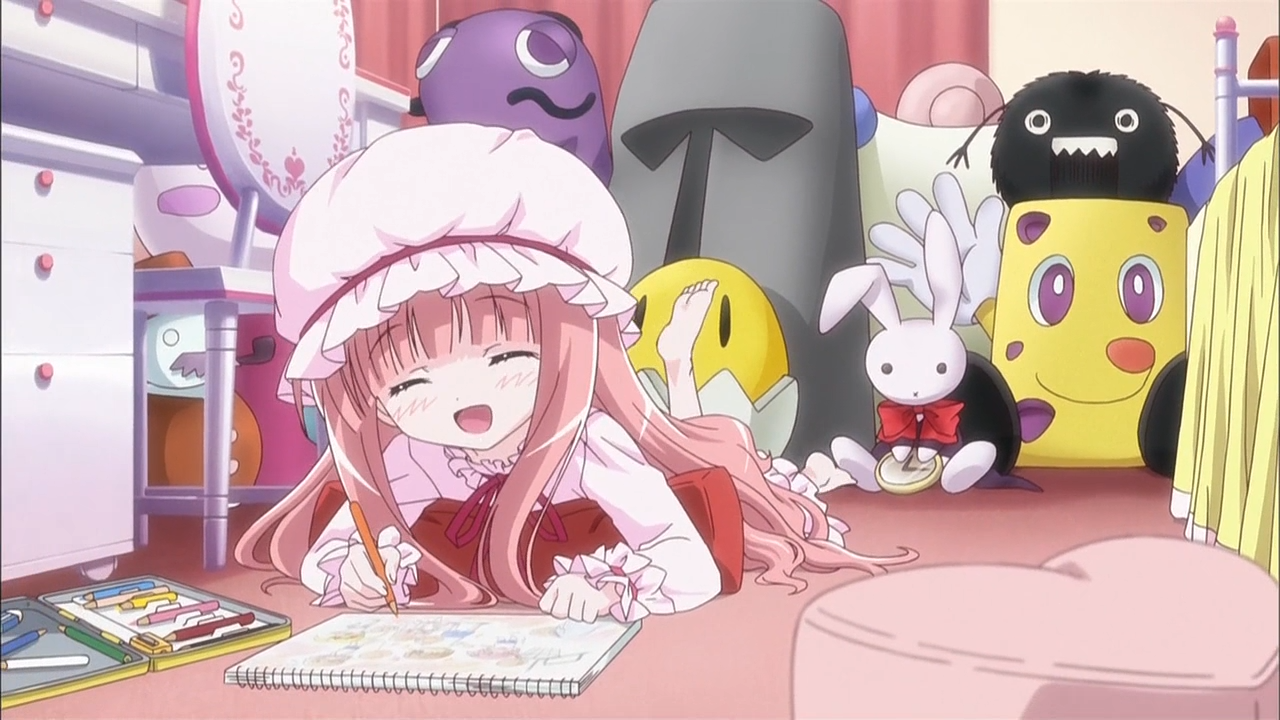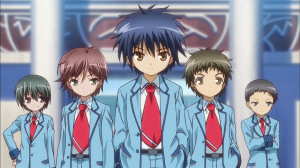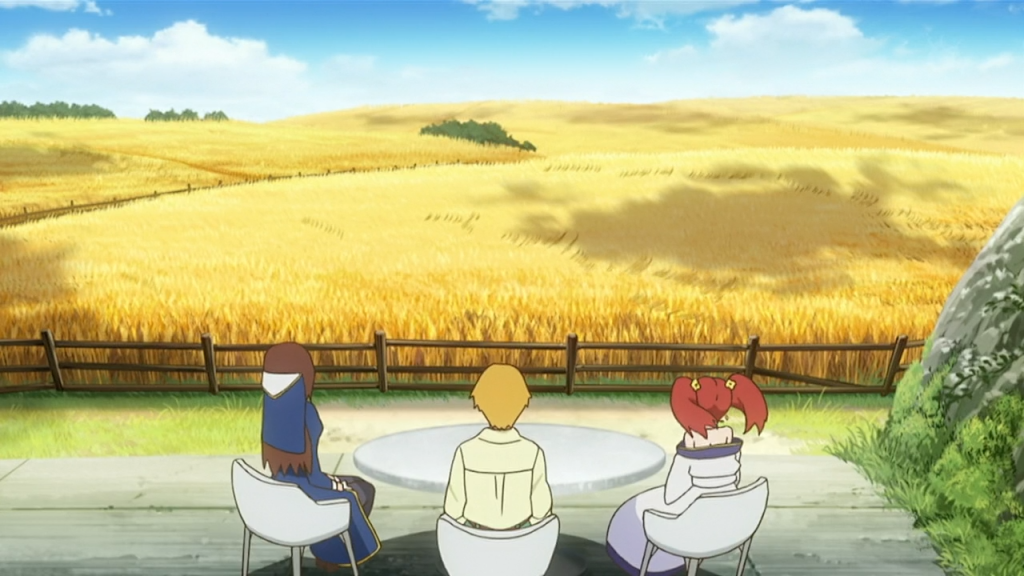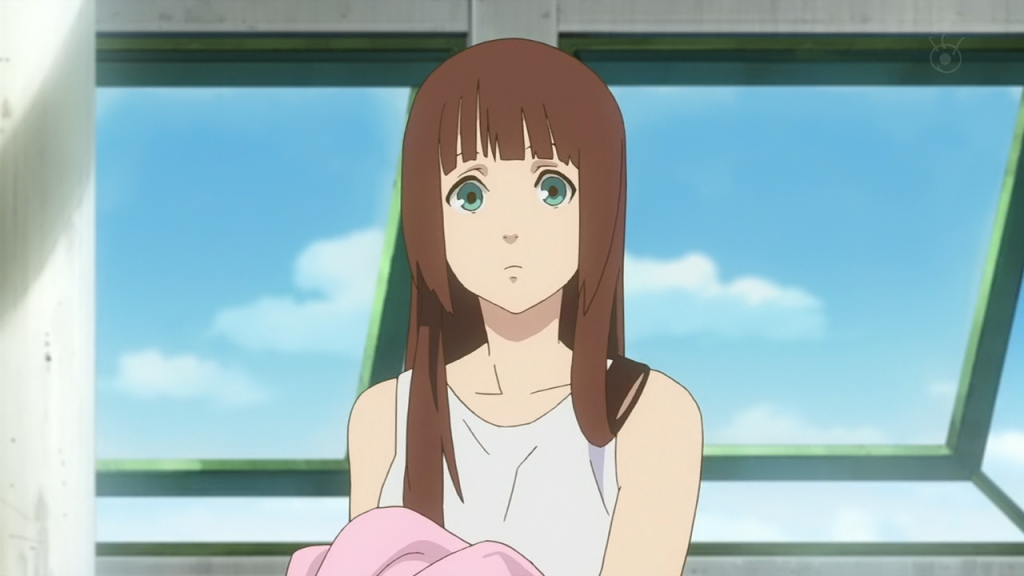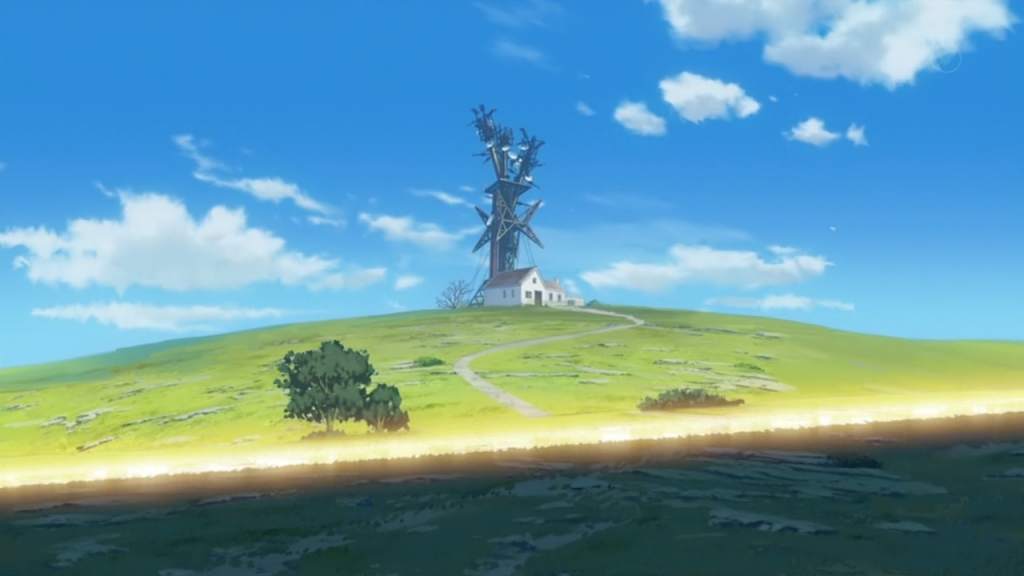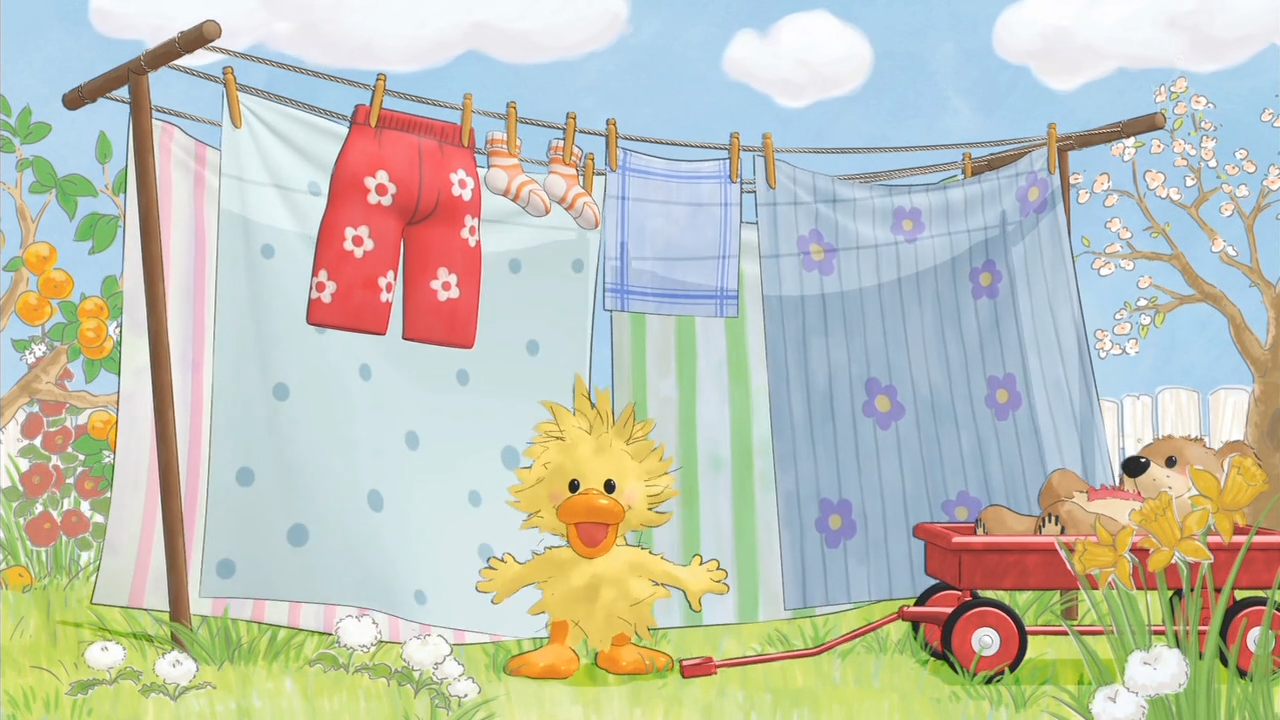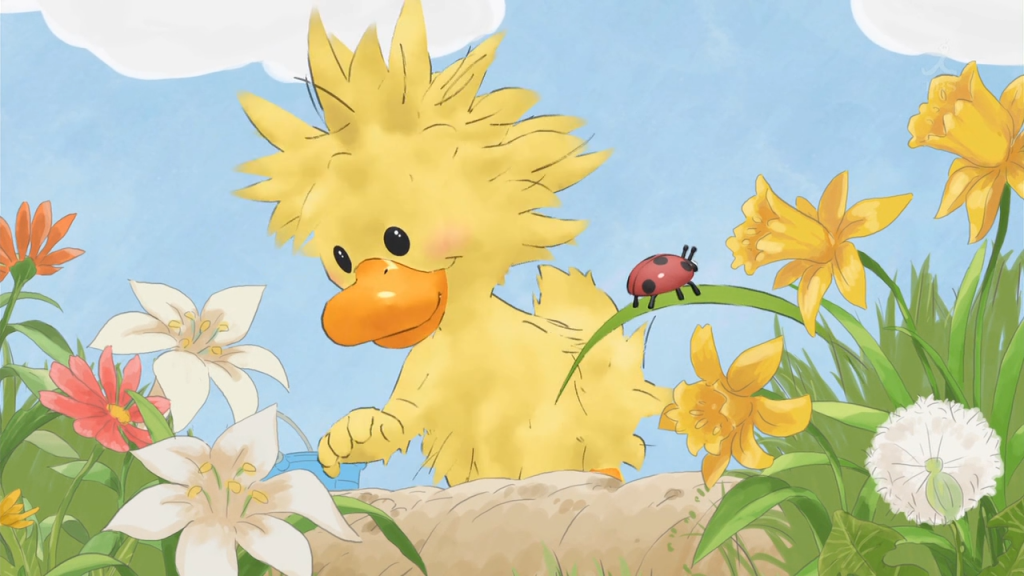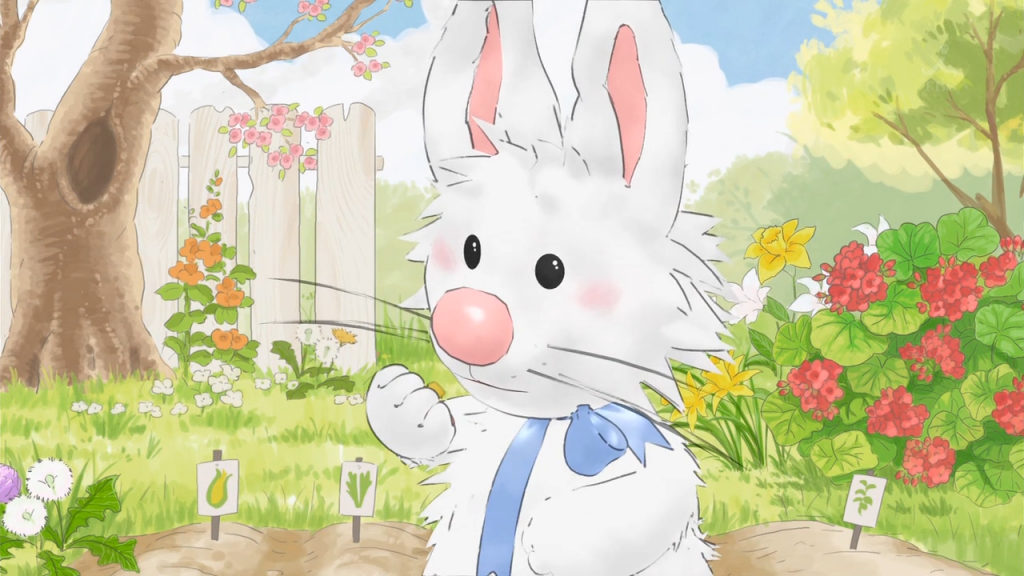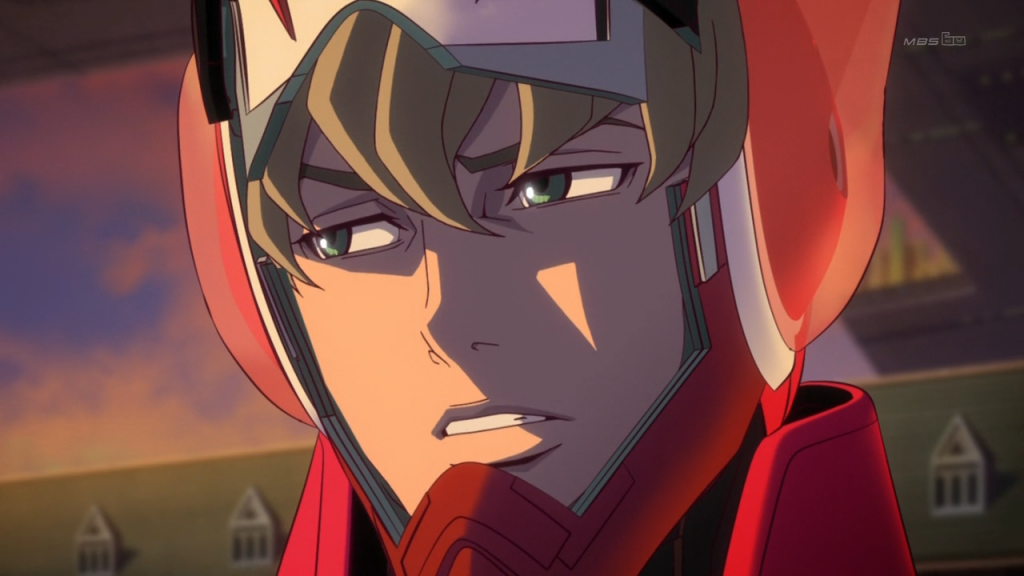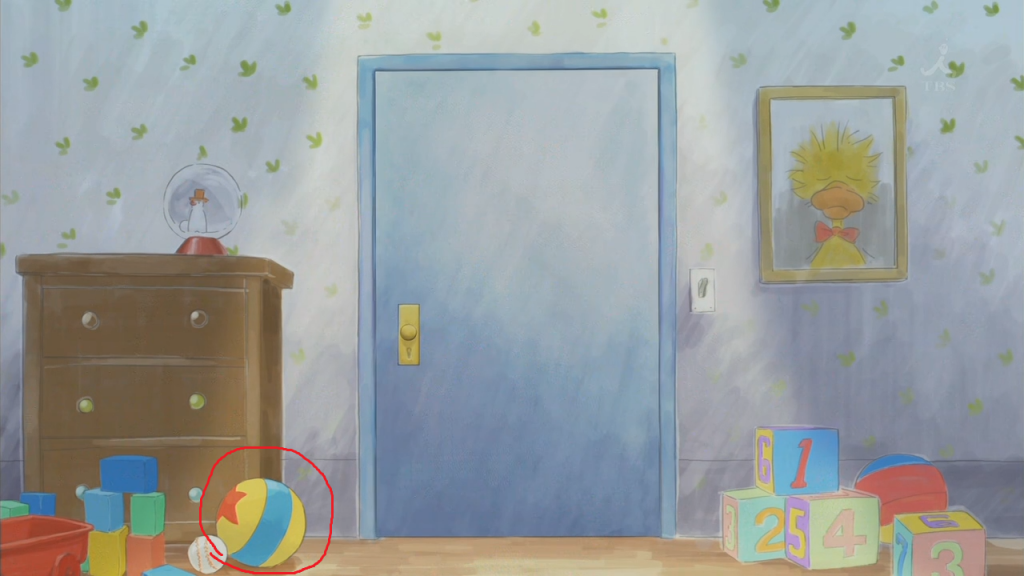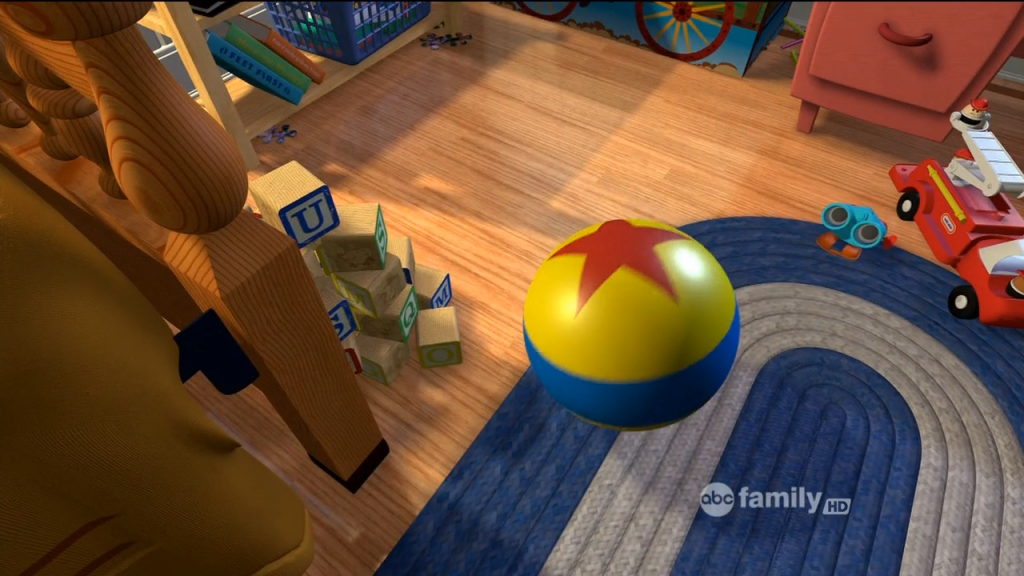
but Shoujo Kakumei Utena is the greatest show ever made.
On a kick I went ahead and watched the whole series in several days. I had started watching it several times before, but never got past the episode 12 to 15 area. The currently airing season is boring except for Ano Hana so I wanted to finally watch one of the various shows I had been meaning to watch but never finished. That meant I would either watch Oniisama e, Versailles no Bara, Sailor Moon, or Utena. Since watching any of those four shows would be a major time investment I knew I had to think carefully. Like everyone else, I loved Star Driver for inexplicable reasons, so when I heard about Ikuhara Kunihiko’s new project, Mawaru Penguin Drum, which will be airing in July, I knew I had to finish watching Utena before that. It didn’t hurt that I already knew that the show was ingenious, having watched the first dozen or so episodes in the past.
Now I’m neither a smart nor sophisticated person, so perhaps I’m at a disadvantage as a viewer. I know there were many references that went straight over my head. I had to look on Wikipedia to find out what a “Santa Maria della Consolazione” was. Nonetheless, I think this show hints at some universal truths which, if I could distill the material down enough to uncover them, would prove enlightening.

That’s both the worst problem about the show and its greatest strength and why I felt like crying on more occasions while watching this show than I would have expected: everything seems important and profound but the viewer never knows why that’s the case. I don’t want to use words like “Kafkaesque” to describe the show because I’ve not read enough of Franz Kafka’s work to talk about him or compare his style to Ikuhara’s. But when you read something that everyone’s read like The Metamorphosis, you keep saying to yourself, “Yes, this Kafka guy is saying something very adroit here about society or the human condition, or something like that. He must be. I wonder what it is exactly?” It’s like that. You’re moved but you don’t really know why. I’ll make no pretense of understanding anything that happened in the show. I will recommend this show to everyone I meet, but if they ask me, “Well, if the show is so great, why don’t you give me a plot synopsis?” I’d be at a loss. Let’s see, there’s a mysterious student council that secretly manipulates the whole school, something about the End of the World, duels, roses, princes on white horses, and arena rock. Sounds like a masterpiece, right?

Well, it really is. A good strategy to secure the viewer who is hanging on the threshold between “keep watching” and “drop” is to open with a bit of the meromero factor: i.e. make them turn to mush. That’s what this show does and it does it well. I wasn’t on the edge, but if I had been, introducing Utena to the viewer through the fairy-tale narrative of her meeting with her prince and vowing to become one herself following the deaths of her parents as a little girl, juxtaposed with scenes of her cleaning everyone’s clocks in basketball sends the viewer head over heels for her immediately. The viewer sees her in her boys uniform immediately, sees her get chewed out for it, sees her popularity with the other girls and hears her called “like a boy”. Introductions are accomplished succinctly. From here on out it’s a beeline for the surreal stuff that the viewers who weren’t on the fence came to see in the first place.

This is where it gets confusing though: within the first ten minutes of the show. It stays that way too. What’s all this “bara no hanayome” stuff? Who is Anthy and why is she “engaged” to Utena? I don’t know how to describe the feelings or thoughts that went through my head the first time I saw the stair climbing scene to the duel area and heard the theme “Zettai Unmei Mokushiroku”. Every time thereafter that this imagery was repeated, however, it never failed to give me chills.

Again, it’s a mysterious effect that this show, the repeated imagery in particular, has on the viewer. The viewer starts to think, “Hmm, could it be, after all, that this show is…formulaic?

No. Well, not in a bad way, at least. I watch House on TV. House and Utena are two very different shows, but they have one important aspect in common. House starts at 8:00 pm. At around 8:30 Dr. House and his team think they’ve figured out what the ailment the patient suffers from is called and how to treat it. Of course, the viewer knows that they are wrong; there’s still 30 minutes before the show ends so he can’t be correct yet. At 8:48 House is in the middle of some unrelated task, stops, stares straight ahead, gets a funny look in his eye, the music changes and the viewer knows he’s figured out what’s really wrong with the patient. This happens in every episode but it doesn’t make the show any less fun to watch. Utena has this effect on the viewer as well, but it’s done in an even more satisfying way that in House.

In Utena the episode begins and we have some background story about whichever character is getting a turn in the spotlight today. The apprehension builds throughout the first half of the episode. Perhaps there are a few moments of comic relief, but the trend is mounting tension. In the second half the main conflict builds until it reaches a critical mass at around the 17 minute mark. At this point the silhouette “kashira kashira” chorus appears and says something that, like all of the allegorical and symbolic elements of the show, is both germane and yet somehow completely abstruse and never quite as decipherable as you’d like it to be
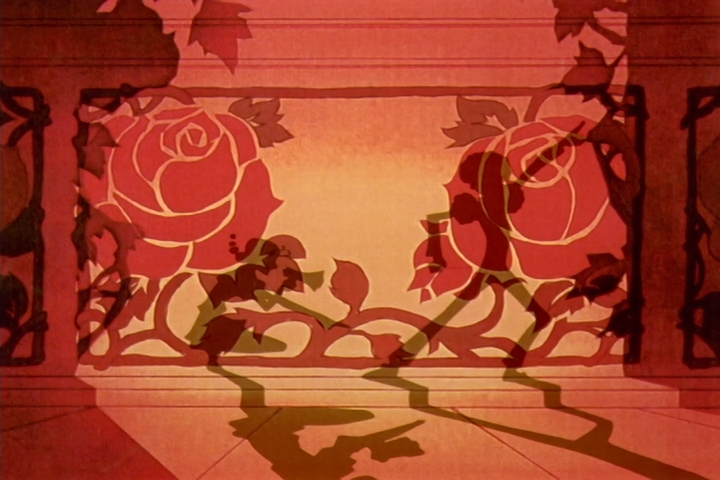
At this point your chest is tight, your knuckles are white, wrapped around the arms of your chair and your heart is beating so quickly you feel it’s about to burst through your ribcage. Just when you can’t take it any longer you see the forest behind the school, “Zettai Unmei Mokushiroku” begins to play, the familiar imagery comes out and you experience an unsurpassed catharsis.

This is all well and good, but what is the show about? Of course, I don’t really know. There are some prominent themes and maybe the case could be made that is has a continuous plot, but I can’t adequately encapsulate it in words. There are a lot of well-known anime motifs in this show, one of the most recognizable being the student council. They’re elite, they’re pretty, and they’re powerful. There’s also a characteristic absence of adults. Akio is an adult, I suppose, and there’s the teacher who scolds Utena for wearing a boys uniform, but adults don’t play much of a role in the overall story. In fact, I think that’s one of the themes. The prince that Utena looks up to tells her not to lose her nobility even when she becomes an adult. Akio loses his nobility when he becomes an adult. He seemed like an alright sort of person as a youngster. He saved Utena, didn’t he? Were the writers taking a page out of Wordsworth and saying that adults=bad, unimaginative, selfish creatures who have lost sight of the valuable things in life along with their sense of wonderment and innocence? Bah, that’s what happens when you think about any single phenomenon in the show; you thing you’re getting somewhere understanding the significance, the “message” behind it, but then things get muddled and you don’t know what’s allegory, what’s sarcasm, what’s satirical, what’s metaphor or what’s reality anymore. Perhaps adults just don’t understand. It’s even in the song. 「これ以上話をしてもあなたには見えない。昔の話にすがる大人には言い訳が似合う。」ってところ

A lot of viewers seem to call this a “yuri” show. I don’t know about that. I’m going to have to watch the series again one day for a better perspective, but I don’t think that lesbianism is such a big theme of the show itself. I think that viewers certainly like projecting lesbian themes onto the show and interpreting things as confirmation of those projections, but I just don’t see much of it. I think that what people are viewing as lesbianism is more about the seeming rigidity of gender role mores contrasted with the actual fluidity of gender identities and roles that constitute a continuum, rather than a dichotomy. The relationship between Anthy and Utena is not really lesbian. There’s nothing in the show that can’t be interpreted symbolically. In one of the songs played during some duel or other there are some lyrics referring to the anima and animus. I think it’s more useful to look at Anthy and Utena in these terms, respectively. The idea that Anthy and Utena are two sides of a single character is also conveyed, to some extent, in the bed they sleep in in Akio’s apartment and when they lie down in it, their silhouettes first melting into and then moving past each other. Of course, that’s about as far as I got in my thinking on my first complete viewing of the series. If I try to go any farther, such as wondering, “What is the show saying about gender? Is it saying the categories into which we assign people, without consent, are too inflexible? too proscriptive?” I end up losing track of my thoughts. One thing that’s made abundantly clear is that these categories do shape our social interactions and have consequences that are not always immediately apparent. I think this bit is symbolized by Anthy, Bara no Hanayome, being trapped in that sword-filled prison-ish thingy

Of course, if Anthy is the girly one and she’s imprisoned, as it were, doesn’t that mean that the show is making a normative statement? Don’t you then have to interpret her imprisonment as an indictment of Utena for not being “girly” enough? Of course, the show is certainly not saying that — all of Utena’s qualities are celebrated, both “feminine” and otherwise — but the anima/animus symbolism might lead you in that direction, which is just another reason why this show is so confusing. You can read anything allegorically, but even when you do, different people will come up with different allegories. I will watch this series again and I’m sure I’ll come up with some completely different ideas.

Speaking of watching it again, I will probably buy the DVDs. I’m poor and fundamentally a pirate; I rarely buy DVDs, especially anime. I don’t like buying R1 DVDs because I feel like it’s not much better than buying those Malaysian DVDs with English, Chinese and Malay subs. If I’m going to buy a DVD or Blu Ray I’ll buy the Japanese release. I buy media on disc not because I will watch from the disc — I rarely buy anything I haven’t seen — I buy it because I like it and will proudly put it on my shelf, rather than in a box in a closet, like I do with all the rubbish shows and movies I’m embarrassed I own. That’s why I feel conflicted about buying the new R1 DVDs that came out on June 7. But the Japanese DVDs are just absurdly expensive, even as far as Japanese DVDs go. If there are going to be three box sets of Utena released here in NA and each is about USD 40 it means I’ll be spending quite a bit of money for something that I only want to own as a symbol of how much I like the show. Still, I do sometimes buy multiple physical copies of novels if I like them enough. In other words, this is not completely out of the ordinary for me. I’m still not sure though that I want to spend up to USD 120 on DVDs of a show that I already have on an HDD. I probably will though. I’ll feel guilty if I don’t. At least I already own the R2J DVD of the movie so I won’t feel tempted to buy that over again.
This show is not as deadly serious as it can feel sometimes. There are moments of comic relief in most episodes and there’s even an animal mascot, Chu-chu.
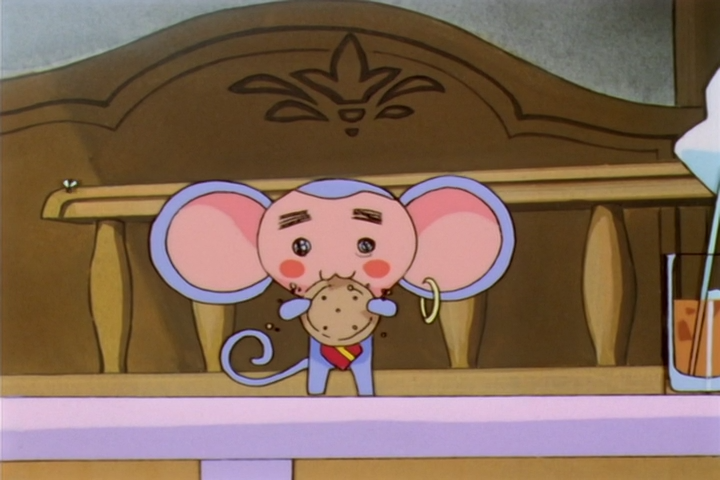
There are couple of what can only properly be referred to as gag episodes. Luckily, they all focus on my favourite character, Kiryuu Nanami. Even these episodes are surreal and, though they are sufficiently different in mood so that the viewer takes them in a different light from the rest of the episodes, there’s still something very affecting about them. The episode in which Nanami, so entranced by what she mistakes for a fashionable brand name, prances about sporting a cow bell, ultimately turning into a cow in mind, body, and even speech is, admittedly, pretty silly, but I enjoyed it.
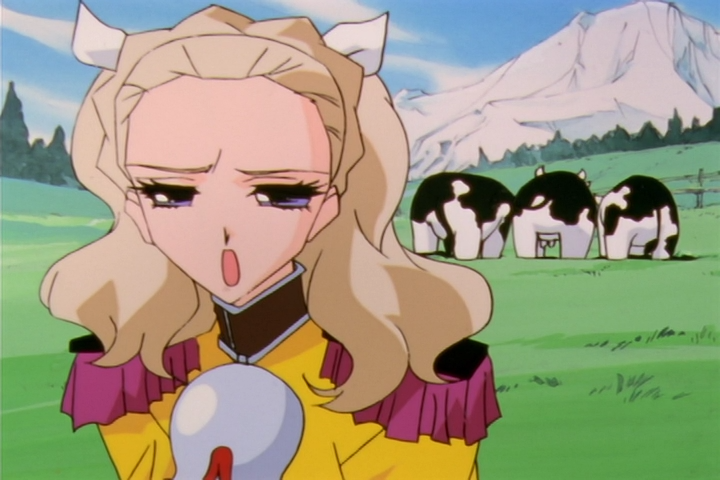
Nanami is my favourite student council member, followed by Jury and Miki. Jury should have gotten another episode. The only opportunity the viewer had to get to know her intimately were the episodes about the fencing captain Ruka. On the other hand, Miki was featured prominently in several episodes and so was Nanami. The cutest bit of the whole series for me was the episode in which Nanami believes she has lain an egg and secretly cares for it. I nearly melted when she realises that she can’t ask anyone for advice because it’s possible that all the other girls have already been laying eggs for a long time and that she, laying her first egg at this stage, would be made fun of as a late bloomer.
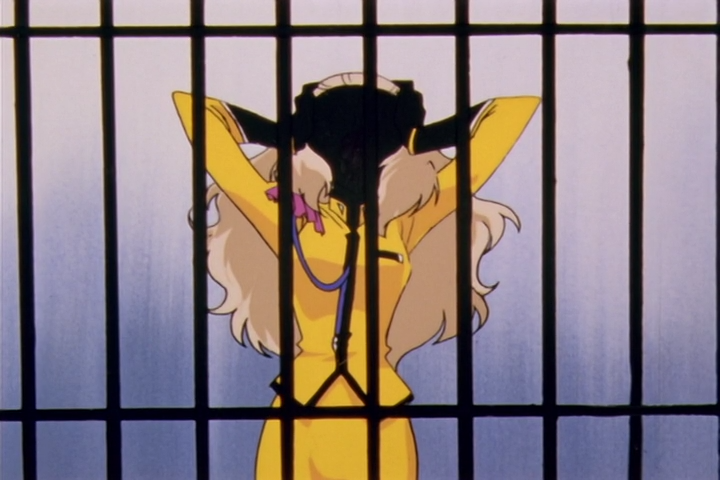
Ahhh ~ why can’t I have an imouto like Nanami?
I loved this show. They sure don’t make ’em like they used to. Although my head is still spinning from the enigmatic plot and symbolism, one final thing that I can say with confidence is that the music is every bit as important a part of this show as the artwork, dialogue and voice actors. It’s got one of the most distinctive sound tracks of any show I’ve ever seen and, although I mentioned that the song “Zettai Unmei Mokushiroku” gives me the chills, many of the other themes also give me the goosebumps. The song called “Akio car” on the soundtrack is just great. This is the song played during the scenes in which Akio is driving that freaky sportscar, showing people the sekais they nozomu. Hearing it makes me feel like I’m in that strange, dark, streetlight-lined roadway that seems to continue forever but never gets anywhere. I’d buy the soundtrack collection as well if it weren’t USD1400.
I’m not sure I have anything more that I can coherently express in proper sentences about the show at the moment, so here are some more pictures of scenery and Nanami:
